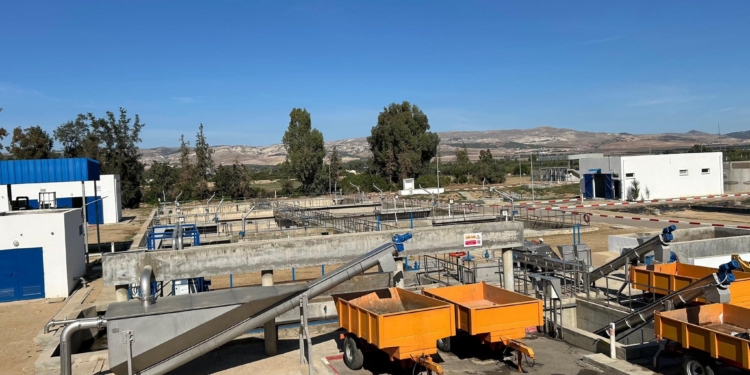The Minister of the Environment, Habib Abid, and the Japanese Ambassador to Tunisia, Takeshi Osuga, inaugurated this Monday the renovation and extension project of the wastewater treatment plant in Mjez El Bab (governorate of Beja), now equipped with tertiary treatment technology. This project, carried out within the framework of Tunisian-Japanese cooperation, mobilized a budget of around 22 million dinars.
Launched in 2022, this modernization was designed to meet the needs of the region until 2041, for the benefit of nearly 30,000 residents. The Minister of the Environment praised the solidity of an environmental partnership of more than 70 years between the two countries, highlighting Japan’s role as one of Tunisia’s main partners in the fields of technology, waste recovery and the fight against climate change.
Tertiary treatment is an advanced stage in wastewater treatment, carried out after primary (settling) and secondary (biological treatment) treatment. Its objective is to obtain very high quality water, sufficiently clean for specific uses such as agricultural irrigation, groundwater supply or even certain industrial uses.
The minister also announced the upcoming arrival of private Japanese companies in the solar energy sector in Tunisia. He also specified that a call for tenders will be launched in December to allow Mjez El Bab farmers to use the treated water from the station to irrigate approximately 100 hectares of forage crops and fruit trees.
For his part, Japanese Ambassador Takeshi Osuga recalled that the environment constitutes one of the priorities of cooperation between the two countries, welcoming the completion of this second sanitation project within the framework of this partnership.
According to Mohamed Abid, central director at ONAS, the Mjez El Bab station rehabilitation project is part of a global program carried out with the Japan International Cooperation Agency (JICA), aiming to modernize four wastewater treatment plants and renew the sanitation networks in ten governorates, for a total amount exceeding 300 million dinars.
Built in the 1990s, the station required upgrading in order to integrate new infrastructure compatible with long-term urban development. The introduction of tertiary treatment aims to guarantee better quality of discharged water, thus protecting the Medjerda wadi.
The station has been redesigned taking into account demographic developments, with a capacity increased to more than 6,000 m³ per day. Several additional sanitation projects have been proposed and are expected to be considered as part of the next Finance Act, at the request of local councils in the North West.








